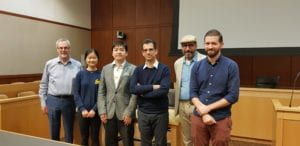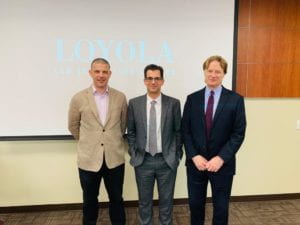 We are delighted to announce that Dr Lena Holzer has joined Goldsmiths as a Lecturer in Law.
We are delighted to announce that Dr Lena Holzer has joined Goldsmiths as a Lecturer in Law.
Lena will be convening the Public Law and the Human Rights Act module (in Year 1 of the LLB), contributing to the Human Rights Law and Clinic module (in Year 3) and injecting specialist human rights law expertise into our programme, particularly through our LLM in International Human Rights (launching in September 2023!).
Lena is bringing to Goldsmiths excellent research capacity in the field of international law, gender justice and sports law.
The Q & A below offers is a first glimpse of Lena’s research, approach to teaching and contributions she is aiming to make to our programme.
Where did you work/study before joining Goldsmiths?
I received my PhD from the Graduate Institute of International and Development Studies in Geneva. My doctoral studies also included spending one year at King’s College London, but due to the COVID-19 pandemic I passed most of this time remotely. Before arriving at Goldsmiths, I taught in different university programmes in Geneva, Utrecht and Krems and worked for various human rights institutions, such as in Switzerland, Austria and Belgium.
What are your specialist areas in Law?
I focus in my research broadly on international human rights law and specifically on how international law impacts gender relations in society. My PhD thesis examined how international law shapes the existence of the gender binary in law. Another area of my research is sports law and its influences on different structures of inequality, such as sexism, racism and transphobia.
What is your role in Goldsmiths’ Law programme?
I will convene the Public Law and the Human Rights Act module and further contribute to the Human Rights Law and Clinic module. I will also be involved in coordinating the final year dissertation and develop my own research projects, focusing particularly on sports, human rights and gender equality.
What is your approach to teaching? What are your plans for the Public Law and the Human Rights Act module for the next academic year?
I enjoy teaching in an interactive manner that requires students to apply theoretical knowledge to real world issues. Since law often reflects past and current power relations, I usually encourage my students to question why certain laws exist, what they do in practice and how they could be changed to foster equality. Hence, I believe that an important task of a law lecturer is to provide students with the tools to critically assess law, and to show how they can use this knowledge in their future professions or current jobs.
Yet, a critical engagement with laws always entails knowing the technicalities and doctrines of laws and legal systems. This is why I will aim in my course on Public Law and the Human Rights Act to teach students the legalistic aspects of UK public law and human rights system, whilst enhancing their sensibilities to critically interrogate the sources of law discussed. In line with the general approach of Goldsmiths’ Law Department, I will analyse public law in its current socio-political context by examining the impact of recent legal developments, such as Brexit. At times, I will also draw the comparison to foreign legal systems to show the specificities of and controversies around the UK public law and human rights system.
You have experience in teaching in interdisciplinary programmes. How will you draw on this experience for your work at Goldsmiths Law?
I will certainly draw on my experience of studying and teaching in interdisciplinary programmes in my work at Goldsmiths since I believe that this can help to prepare the students for their careers as lawyers. I think that my interdisciplinary academic profile has allowed me to develop the capacity to teach law to a broad audience with different interests and background knowledges. This is crucial for a law programme that aims at making legal education accessible and practice-oriented. I am further convinced that lawyers can more effectively regulate an issue if they understand the subject matter from different angles, which is why I will encourage my students to read broadly and also familiarise themselves with literature from other disciplines. Moreover, as lawyers end up working in all types of professions these days, it becomes even more important to have transversal skills and a grasp of interdisciplinary debates.
What are you looking forward to the most being at Goldsmiths?
I am excited to join a department that strives towards teaching a new generation of lawyers the legal tools for promoting equality, justice and a sustainable future. The educational approach of Goldsmiths will allow me to connect my passion for theoretical engagements with laws with a practice-oriented approach that can help to generate critical human rights lawyers. I am specifically looking forward to working in an environment that fosters creative and critical thinking and to being surrounded by highly motivated colleagues. Not only will I be able to draw inspiration from my colleagues’ teaching methods and research, but I will also learn from my students who will push me to question my own approaches and perspectives.

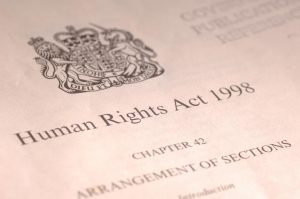 Our Department of Law is passionate about connecting with young students in schools across London and the UK, and across a range of educational settings, with a view to engaging them with, and giving them a platform to participate in, contemporary debates through a socio-legal lens.
Our Department of Law is passionate about connecting with young students in schools across London and the UK, and across a range of educational settings, with a view to engaging them with, and giving them a platform to participate in, contemporary debates through a socio-legal lens.

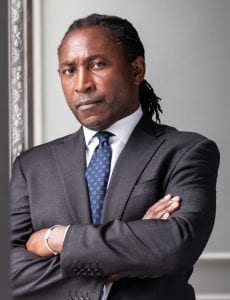
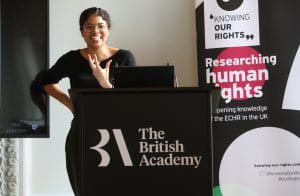
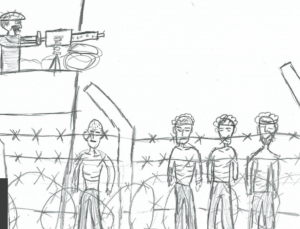
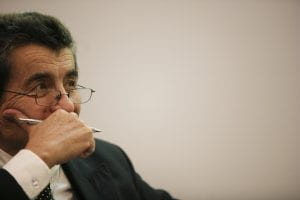
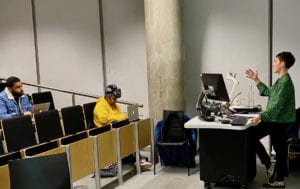
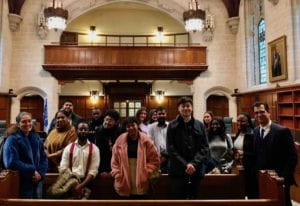
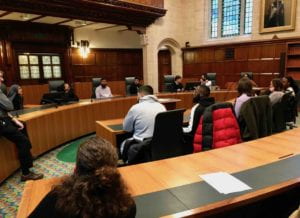
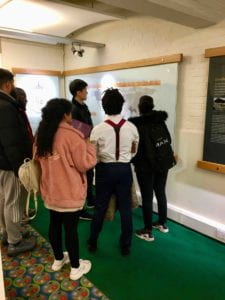
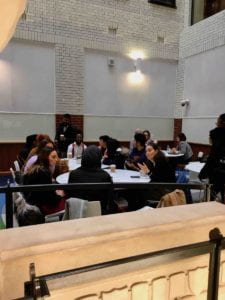
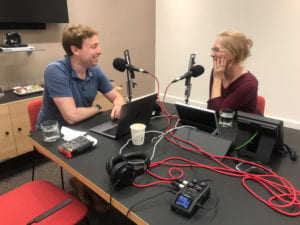
 The Better Human Podcast will explore the most important human rights issues of the day – Brexit, facial recognition, racism in sport, assisted dying, artificial intelligence – through engaging and accessible interviews with high-profile guests and plain English guides to key concepts and historical events. The tone of the podcast will be open and unpretentious, with all technical terms and concepts explained.
The Better Human Podcast will explore the most important human rights issues of the day – Brexit, facial recognition, racism in sport, assisted dying, artificial intelligence – through engaging and accessible interviews with high-profile guests and plain English guides to key concepts and historical events. The tone of the podcast will be open and unpretentious, with all technical terms and concepts explained.